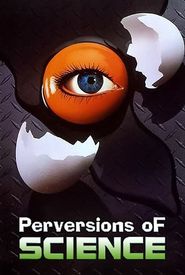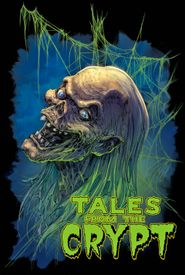William Gaines, a transformative and iconic figure in the realms of comic book and humor, embarked upon his illustrious journey by circumstance. Born into a family with a deep connection to the industry, his father, M.C. (Max) Gaines, a renowned publisher of Educational Comics (EC),had left an indelible mark on the world of comic books prior to his untimely demise in 1947. The sudden and inexplicable boating accident that took his life sent shockwaves through the industry, leaving a void that would need to be filled. As a result, the younger Gaines, William, was thrust into the role of leader at EC, setting in motion a series of events that would forever alter the landscape of comic books and humor.
William Gaines, the innovative and forward-thinking entrepreneur, took a crucial and far-reaching decision as the leader of his esteemed publishing empire, EC Comics. As the company was publishing a diverse range of titles, Gaines astutely recognized that the horror and science fiction genres were particularly resonating with readers, evoking a strong emotional connection and captivating their imagination.
In response to this profound trend, Gaines took a bold and decisive action, courageously scrapping the educational comics and boldly revamping the company's identity by transforming Educational Comics into Entertaining Comics. This strategic pivot marked a turning point in the history of EC Comics, as Gaines redirected his energies and focus towards nurturing the remaining lines, thereby shaping the course of the company's future endeavors and cementing his legacy as a visionary leader.
Gaines' innovative decision not only reflected his astute business acumen but also his willingness to adapt and evolve in response to changing market trends and reader preferences. By transforming EC Comics into Entertaining Comics, Gaines was able to capitalize on the growing popularity of horror and science fiction genres, ultimately paving the way for the company's continued success and growth.
As the early 1950s gradually unfolded, EC Comics had already solidified its position as a dominant force within the industry, boasting an impressive array of iconic and influential titles that would ultimately go on to exert a profound impact on the trajectory of comic book history.
As the decade of the 1950s progressed, a substantial counter-movement began to emerge in response to the previously widespread popularity of comic books, this shift in public opinion being largely catalyzed by the groundbreaking research and writings of renowned psychiatrist Dr. Frederic Wertham.
The controversy surrounding the comic book industry's perceived influence on youth continued to escalate, ultimately resulting in a comprehensive and highly publicized Senate inquiry. This landmark investigation thoroughly examined the comic book industry's practices and the potential consequences of its content on young people.
EC Comics, a renowned publisher of the genre, found itself severely constrained in its ability to produce the distinctive type of comics for which it had gained widespread recognition. The company was compelled to adjust to the new, more restrictive climate, thereby signaling the demise of its heyday as a significant force in the comic book industry.
The profound repercussions of Frederic Wertham's seminal publication, coupled with the subsequent congressional inquiry, had a profound and lasting impact on the comic book industry, precipitating a substantial transformation in the tone and substance of these visual narratives, as well as a precipitous decline in their popularity among the youth demographic.
William Gaines, the remarkable individual, was blessed with a treasured asset within his esteemed comic book empire, EC, which remarkably managed to evade the restrictive guidelines imposed by the Comics Code Authority (CCA). This fortunate circumstance was none other than the hilarious and iconic publication, "MAD", which Gaines astutely transformed from a full-color comic to a black-and-white magazine. Through this innovative move, he shrewdly circumvented the CCA's censorship, thereby ensuring the magazine's artistic liberty to thrive and flourish.
As the visionary editor Al Feldstein skillfully mentored, Harvey Gaines expertly collaborated with the iconic "usual gang of idiots" to transform "MAD" into a beacon of satire and humor, effortlessly captivating the hearts and minds of youthful audiences throughout the pivotal decades of the 1960s, 1970s, and 1980s, leaving an indelible mark on the world of entertainment and popular culture.
William M. Gaines' biography:
William M. Gaines was an American publisher, entrepreneur, and the founder of EC Comics, which he established in 1946. Born on March 21, 1922, in New York City, Gaines grew up with a passion for comics and eventually took over the family business, which had been founded by his father, Max Gaines.
Harvey Kurtzman, a renowned colleague of Al Feldstein, had already parted ways with the esteemed publication, leaving William Gaines as the sole proprietor of the iconic magazine.























